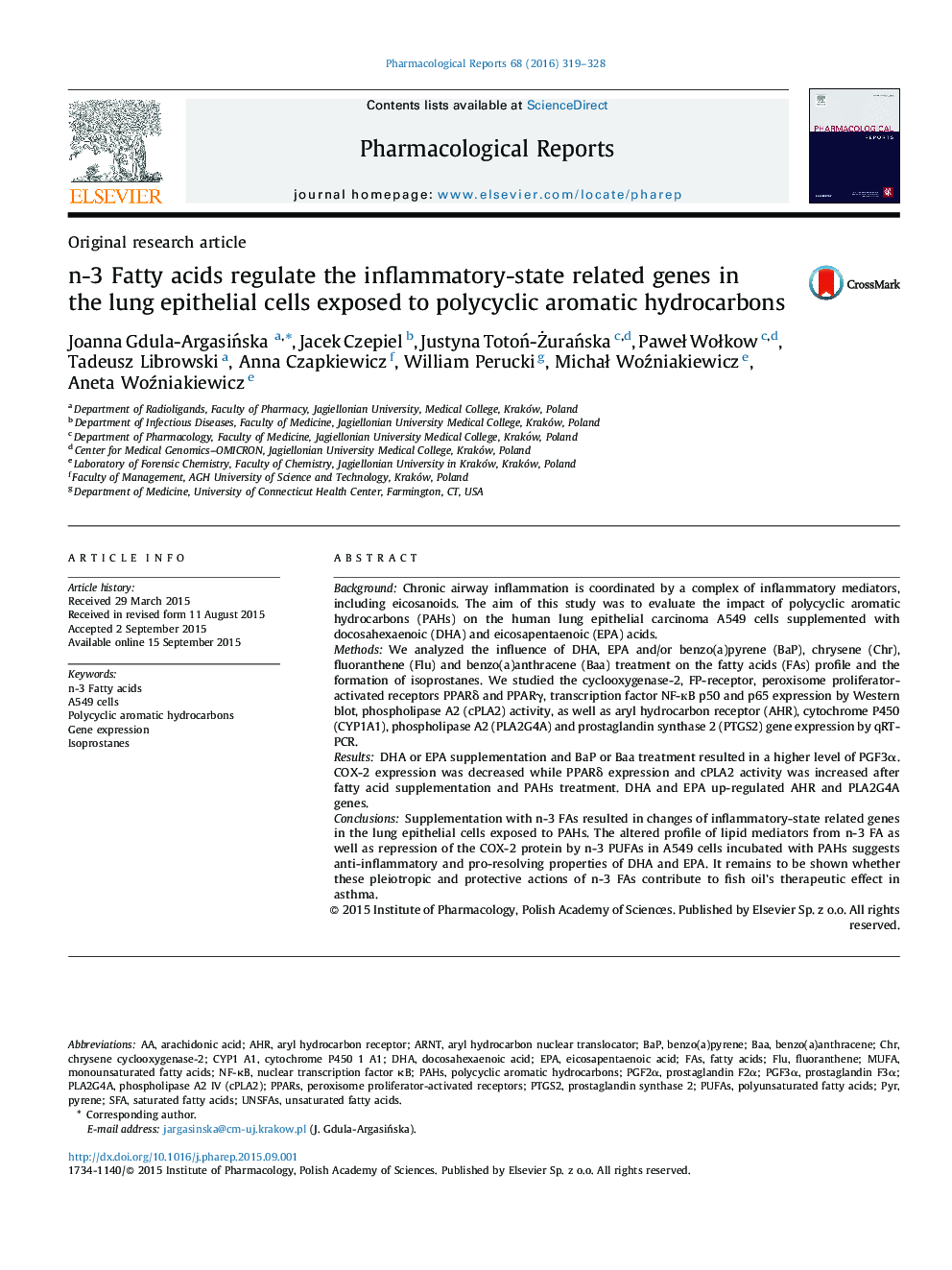| Article ID | Journal | Published Year | Pages | File Type |
|---|---|---|---|---|
| 2011638 | Pharmacological Reports | 2016 | 10 Pages |
BackgroundChronic airway inflammation is coordinated by a complex of inflammatory mediators, including eicosanoids. The aim of this study was to evaluate the impact of polycyclic aromatic hydrocarbons (PAHs) on the human lung epithelial carcinoma A549 cells supplemented with docosahexaenoic (DHA) and eicosapentaenoic (EPA) acids.MethodsWe analyzed the influence of DHA, EPA and/or benzo(a)pyrene (BaP), chrysene (Chr), fluoranthene (Flu) and benzo(a)anthracene (Baa) treatment on the fatty acids (FAs) profile and the formation of isoprostanes. We studied the cyclooxygenase-2, FP-receptor, peroxisome proliferator-activated receptors PPARδ and PPARγ, transcription factor NF-кB p50 and p65 expression by Western blot, phospholipase A2 (cPLA2) activity, as well as aryl hydrocarbon receptor (AHR), cytochrome P450 (CYP1A1), phospholipase A2 (PLA2G4A) and prostaglandin synthase 2 (PTGS2) gene expression by qRT-PCR.ResultsDHA or EPA supplementation and BaP or Baa treatment resulted in a higher level of PGF3α. COX-2 expression was decreased while PPARδ expression and cPLA2 activity was increased after fatty acid supplementation and PAHs treatment. DHA and EPA up-regulated AHR and PLA2G4A genes.ConclusionsSupplementation with n-3 FAs resulted in changes of inflammatory-state related genes in the lung epithelial cells exposed to PAHs. The altered profile of lipid mediators from n-3 FA as well as repression of the COX-2 protein by n-3 PUFAs in A549 cells incubated with PAHs suggests anti-inflammatory and pro-resolving properties of DHA and EPA. It remains to be shown whether these pleiotropic and protective actions of n-3 FAs contribute to fish oil's therapeutic effect in asthma.
